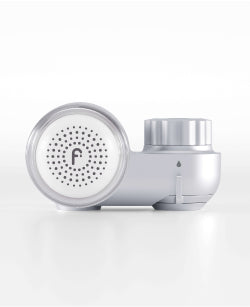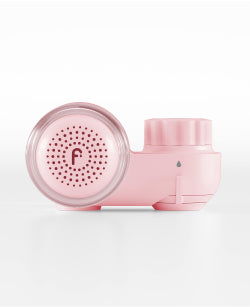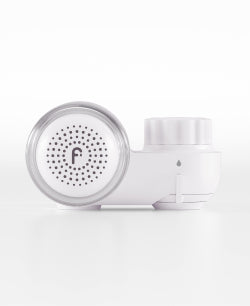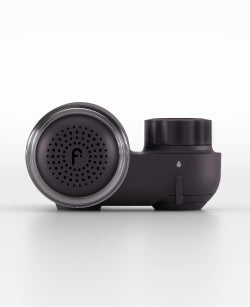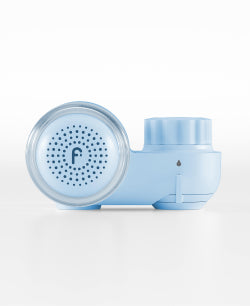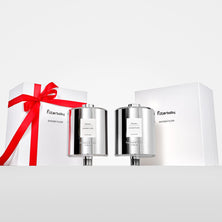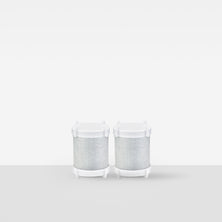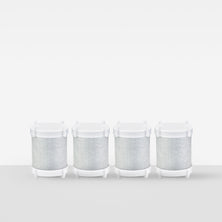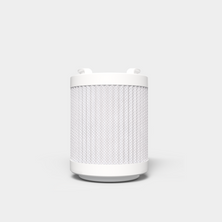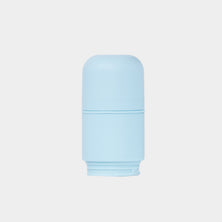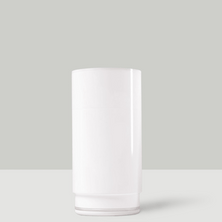Do you know about the influence of water on psoriasis? Continue reading to find out everything you need to know about the effects of water on psoriasis.
Margaret Trashian, MD

Psoriasis is a chronic condition that can feel like an uninvited guest that refuses to leave. It can be unpredictable and can flare up without warning, leaving those who suffer from it feeling frustrated and helpless. What's worse, there are many environmental factors that can exacerbate the condition, including the quality of the water we use.
Hard water with high mineral content can be particularly problematic for people with psoriasis. The minerals in the water can cause dryness and irritation, which can lead to flare-ups of psoriasis. Additionally, water contaminated with bacteria can cause infections that can make the condition even worse.
Even seemingly harmless tap water can be problematic for people with psoriasis. Chlorine, which is commonly used to disinfect tap water, can be very drying to the skin, which can worsen psoriasis symptoms.
If you're looking to manage your psoriasis symptoms, paying attention to the quality of your water may be a good place to start. Installing a water softener or investing in a shower filter can help to reduce the number of minerals and contaminants in your water, which can help to prevent flare-ups and infections.
What is psoriasis?
Psoriasis is a condition that can have a significant impact on a person's quality of life. In addition to the physical symptoms, which can be quite uncomfortable, the condition can also cause a great deal of emotional distress. The appearance of the skin plaques can be very visible, and some people may feel embarrassed or self-conscious about their condition.
Psoriasis is a chronic condition, which means that it persists over time. While the symptoms may come and go, they will usually recur throughout a person's life. This can make it challenging to manage, as people with psoriasis may need to continually adjust their treatment plan to maintain control over their symptoms.
There are several different types of psoriasis, including plaque psoriasis, guttate psoriasis, inverse psoriasis, and pustular psoriasis. Each type of psoriasis has its own unique symptoms and may require different treatment approaches.

What causes psoriasis?
While the exact causes of psoriasis are not fully understood, researchers believe that genetics play a significant role. Studies have shown that certain genes are associated with an increased risk of developing psoriasis, and that the condition often runs in families.
Environmental factors can also trigger psoriasis or make it worse. These can include things like stress, quality of water, infections, and certain medications. In addition, exposure to certain environmental toxins, like cigarette smoke or air pollution, can also contribute to the development of psoriasis. One of the key triggers for psoriasis is inflammation. When the immune system is activated by an injury or infection, it releases inflammatory molecules that can lead to the development of psoriasis. This is why many people with psoriasis find that symptoms worsen during times of stress or illness.
Natural ways to manage psoriasis
Diet
Eliminating processed foods and alcohol from your diet can be a helpful step in managing psoriasis symptoms. Processed foods often contain high levels of sugar and unhealthy fats, which can increase inflammation in the body and exacerbate psoriasis symptoms. Similarly, alcohol can also trigger inflammation and may make psoriasis symptoms worse. By avoiding these types of foods and drinks, you can reduce inflammation and improve overall health, which may help to improve psoriasis symptoms. However, it's important to note that diet alone is unlikely to be a cure for psoriasis, and that it's important to work with a healthcare professional to develop a comprehensive treatment plan.
Filtered water
Filtered water can be beneficial for people with psoriasis as it can help to eliminate hard water minerals, such as calcium, which can exacerbate psoriasis symptoms. Hard water can lead to dryness and irritation of the skin, which can trigger psoriasis flare-ups. Using a water softener or a filter, like the Filterbaby PROdermis can help to reduce the amount of harsh minerals in the water, which can help to keep the skin hydrated and healthy. In addition, filtered water can also help to remove impurities and contaminants that can cause infections, which can make psoriasis symptoms even worse.

FAQ
Does water quality affect psoriasis?
Hard water is known to worsen psoriasis and eczema and can be painful for individuals already suffering from these skin conditions. One of the ways to solve this problem is by utilizing a water softener or water filtration system to remove excess calcium and magnesium from the water.
How can you heal psoriasis naturally?
- Warm baths
- Filtered water
- Aloe vera
- Omega-3 fatty acids
- Turmeric
- Oregon grape
- Maintaining a moderate weight
- Using a humidifier
- Stress-relieving activities
Does bathing daily help psoriasis?
Soaking in a warm bath or shower can help soothe your skin by hydrating and softening these lesions. But frequent, hot baths or showers can dry skin and worsen psoriasis.
What is the best way to manage psoriasis?
Steroid creams or ointments are commonly used to treat mild to moderate psoriasis in most areas of the body. The treatment works by reducing inflammation. This slows the production of skin cells and reduces itching. Topical corticosteroids range in strength from mild to very strong. Talk to your health care provider to discuss what options are best for you.
Conclusion
Managing psoriasis can be a challenging and frustrating experience, but paying attention to environmental factors such as water quality can make a significant difference. Hard water with high mineral content and water contaminated with bacteria can trigger flare-ups and infections, while tap water with high levels of chlorine can exacerbate psoriasis symptoms.
Filtering your water can help to eliminate harsh minerals and impurities, which can keep your skin hydrated and healthy. Additionally, eliminating processed foods and alcohol from your diet can also be helpful in managing psoriasis symptoms by reducing inflammation in the body. However, it's important to work with a healthcare professional to develop a comprehensive treatment plan, as psoriasis is a chronic condition that may require a multifaceted approach to manage effectively.
Visit Filterbaby.com to find out more about how to better meet your skincare goals.
P.S. We did the homework so you don’t have to:
- Smith, C. H. (2006, Jun 30). Psoriasis and its management. BMJ. https://www.bmj.com/content/333/7564/380.short
- Upala, S., Sanguankeo, A. Effect of lifestyle weight loss intervention on disease severity in patients with psoriasis: a systematic review and meta-analysis. Int J Obes 39, 1197–1202 (2015). https://www.nature.com/articles/ijo201564#citeas
